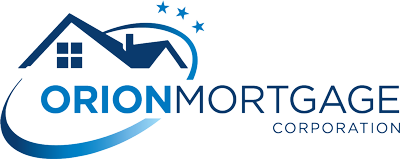“Don’t tell anyone about this” is what she told me.
It was my first day in the mortgage business, 21 years ago. I was meeting some of the other loan officers in my new office, learning the ropes and trying to find my place.
Her name was Teri…or maybe Sue. Although her actual name escapes this steel vault of a brain I have, I will never forget what she was telling me. She was talking about “overage” and it was as dirty of a secret as there ever was in lending. Overage was how mortgage companies and loan officers (LO’s) made more money and how borrowers were gouged into a higher interest rate without even knowing it. I don’t think anyone in the mortgage business ever told their client what overage was but I’m going to tell you about it right now.
Back in the day (before the mortgage market crash of 2008), LO’s were paid commissions on the loans they originated. The higher the interest rate that the LO gave the client, the higher the LO’s commission. Banks paid the mortgage companies extra money for originating higher interest rate loans and that extra money was referred to as “back side pricing” because the clients never saw it and they weren’t aware of it. The back side pricing was also commonly referred to as “overage” and the higher the interest rate, the greater the overage. Mortgage companies encouraged LO’s to maximize the interest rates they were giving their clients by sharing the overage with the LO’s. For example, this is what it might have looked like;
– $100,000 loan amount
– Commission to the LO is 1% of the loan amount = $1,000
– Market interest rate = 7.00%
– If the LO gave the client a higher rate of 7.25%, there might have been overage of let’s say 1.50 points ($1,500) which would be split between the company and the LO, raising the LO’s commission from $1,000 to $1,750.
Dishonest? Yes. Evil? Maybe. Before we bemoan the banks and mortgage companies that created these incentives that raised rates for their clients and lined the pockets of the banks & mortgage companies, keep in mind that this practice of profiting at the expense of their clients isn’t all that different from most other businesses. The term Caveat Emptor (“buyer beware”) is something my economics teacher in college used to teach us. In our open market system, we the buyer have the right to educate ourselves before we buy, shop for the best deal, and in short, be responsible for our own decisions.
Unfortunately, there are some bad apples in all industries within our open market system who try to profit as much as possible from their clients regardless of what the market price should be. People are always afraid of getting screwed when they have to buy a car or buying clothes before they go on sale. Even grocery stores have played on our fears of getting screwed by offering coupons, double and triple coupons, club pricing and other “discounts” intended to sell more product. The bottom line is, in America we are free to sell at whatever price we choose, just as much as we are free to shop around as buyers for the best deal. You need to fill up your car with gas? Feel free to drive all over town comparing gas prices and fill up where you choose. Caveat Emptor all day long, right?
Wrong.
In 2010, our beloved government created a new rule for the mortgage industry to “protect” its citizens from getting screwed when getting a mortgage. In short, the rule stated the compensation that a LO receives cannot vary based on the terms of the loan. That means there is no longer an incentive for the LO to sell a client a higher rate because they will only make their flat commission…no more overages to be shared (remember this point as it will mean more in a minute). Sounds reasonable, doesn’t it? I mean, I have been a mortgage broker for over two decades and even I am in favor of this rule because it protects the interests of my clients. The only problem with this rule is that it doesn’t apply to banks. That’s right…loan officers and mortgage brokers are all limited in what they can earn on a loan, but our good old government saw to it that the banks can still make that back-side pricing and even worse, they no longer have to share it with their LO’s!
My point is simple – you should know the truth and the truth is, when you get a loan from a mortgage broker, his/her compensation cannot go higher (or lower) based on the interest rate they give you. The days of overages and back-side pricing ended for brokers in 2010. However, if you get a loan from a bank, the back-side pricing still exists for them and they don’t have to share it with anyone. The incentives still exist for banks to make as much money from you as they possibly can. They can (and do) keep all the back-side pricing for themselves. Unfair for small business – yes it is. Confusing for the client – you bet.
I’d like to believe the government’s goal really was to protect clients from getting screwed when getting a mortgage. Unfortunately, their solution only got it half right.


